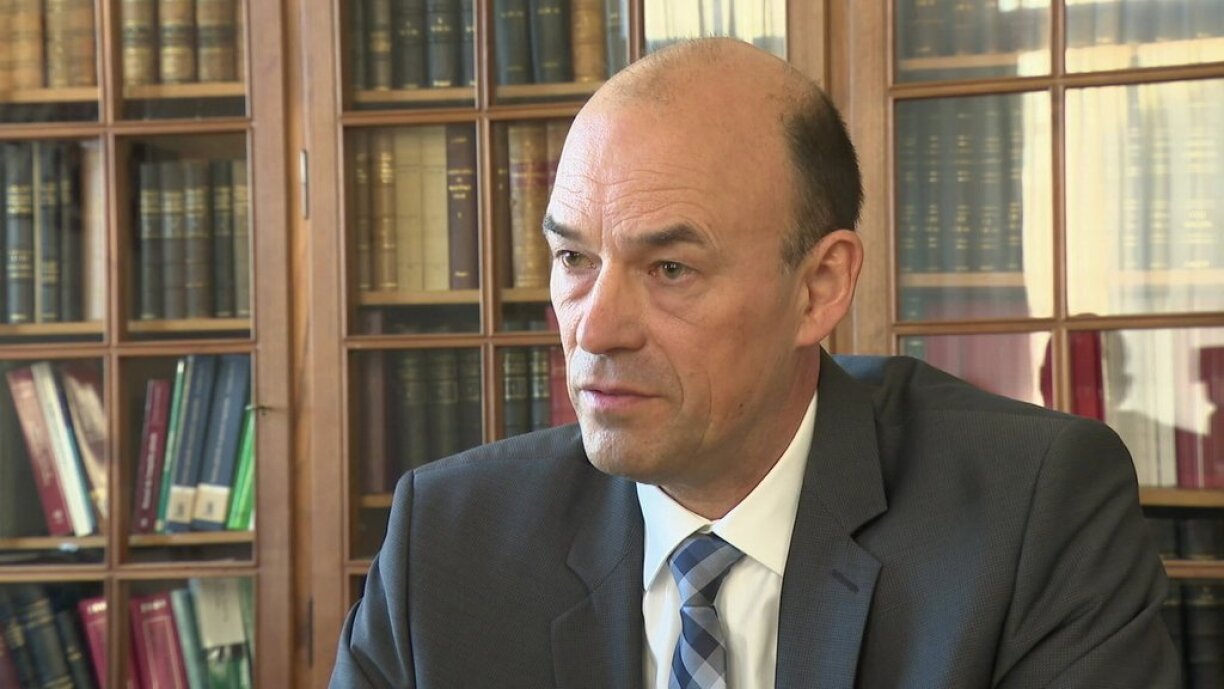
Is simple begging prohibited by criminal law or not? This could not be answered in one sentence, but the public prosecutor’s office assumes that simple begging no longer exists as a criminal offence in the Criminal Code, according to the public prosecutor of the Luxembourg City district. Georges Oswald traced this interpretation back to a 2008 amendment to the Immigration Act, specifically Article 563 of the Criminal Code, where a seemingly unintentional deletion occurred, inadvertently removing the provision related to simple begging. Oswald highlighted the existence of conflicting opinions, with some asserting that simple begging has not de facto been abolished as a criminal offence.
-> Fact Check: Is the act of simple begging prohibited by Luxembourg’s criminal law?
However, Oswald pointed out that there had been numerous parliamentary questions on the issue over the years and that various ministers had repeatedly stated during many public debates that simple begging had been abolished as a criminal offence. He lamented the resulting legal uncertainty and noted that opportunities to address this matter legislatively since 2008 have been overlooked.
The legal basis of the police regulation in Luxembourg City is also being disputed, the public prosecutor explained. Oswald pointed out that Article 19 of the Constitution stipulates that punishment must be rooted in law. A law (in the formal sense) is above a municipality’s police regulation in the legal hierarchy, according to Oswald. He also pointed out that Article 37 of the new constitution contains a disposition that says that a public freedom may only be restricted by a law. Additionally, Oswald highlighted Article 37 of the new constitution, which stipulates that public freedoms can only be restricted by law. With the assumption that simple begging is no longer criminally punishable, Oswald argued against the legitimacy of reintroducing such punishment through a police regulation.
Minister for Home Affairs Léon Gloden, however, relies on a decree from 1789 to support the police regulation in Luxembourg City. Oswald expressed scepticism about the viability of this historical decree as a legal basis, deeming it “peculiar” and suggesting that its vague formulation raises questions about its adequacy as a foundation for legal arguments in potential trials.
While the Minister for Home Affairs had issued directives for police officers to take action against all ordinary beggars and the municipality of Luxembourg City had also distributed flyers invoking Article 563 (which was amended), ordinary beggars seeking alms would not be affected, Oswald said. Oswald clarified that the police, under current circumstances, lack the discretion to selectively prosecute individuals based on their begging activity. He emphasised that the police must issue a penalty notice in EVERY CASE, eliminating the possibility for subjective judgment in individual prosecutions. Oswald expressed concern about the impracticality of tasking the police with distinguishing between “ordinary” beggars and others, especially considering the ambiguous definition of “aggressive begging.”
The delays at the public prosecutor’s office for cases categorised as minor offences, including begging, are already a matter of concern. Oswald highlighted existing delays of several months for cases dealt with by police tribunals, citing examples like small fights, minor car accidents, and incidents of driving under the influence. “And I have to tell you, if I ever had the luxury of being able to say that we have all types of crime under control, then prosecuting cases like that would be the last thing on my list,” said Oswald. In particular, he highlighted the limited “criminal energy” associated with begging.
Should a begging case progress to a trial, Oswald noted practical challenges. Notably, citing an individual to court becomes challenging due to the lack of a permanent address for beggars. The need for an interpreter from the police, translation of all case files into a language comprehensible to the individual, and the financial constraints faced by the person involved further complicate legal proceedings.
The genesis of the begging ban stems from the broader effort to combat organised begging. While the intentions behind this objective are shared, changing police regulations is deemed an inappropriate means to achieve the desired ends, according to Georges Oswald: “It’s like giving me a pitchfork to shovel snow.”
He contended that the criminal law already empowers the public prosecutor’s office to address organised begging effectively. Despite this legal authority, progress has been slow.
Oswald clarified that investigations into organised begging face significant challenges, primarily due to their protracted nature. Many of the individuals orchestrating such activities operate from abroad, making surveillance and evidence gathering a time-consuming process. Oswald explained that simply establishing evidence of individuals arriving in Luxembourg by car is insufficient; it’s just one piece of a much larger puzzle.
He revealed that several investigations had been initiated, including one in 2021 involving minors. However, these efforts encountered various obstacles, leading to inconclusive results.